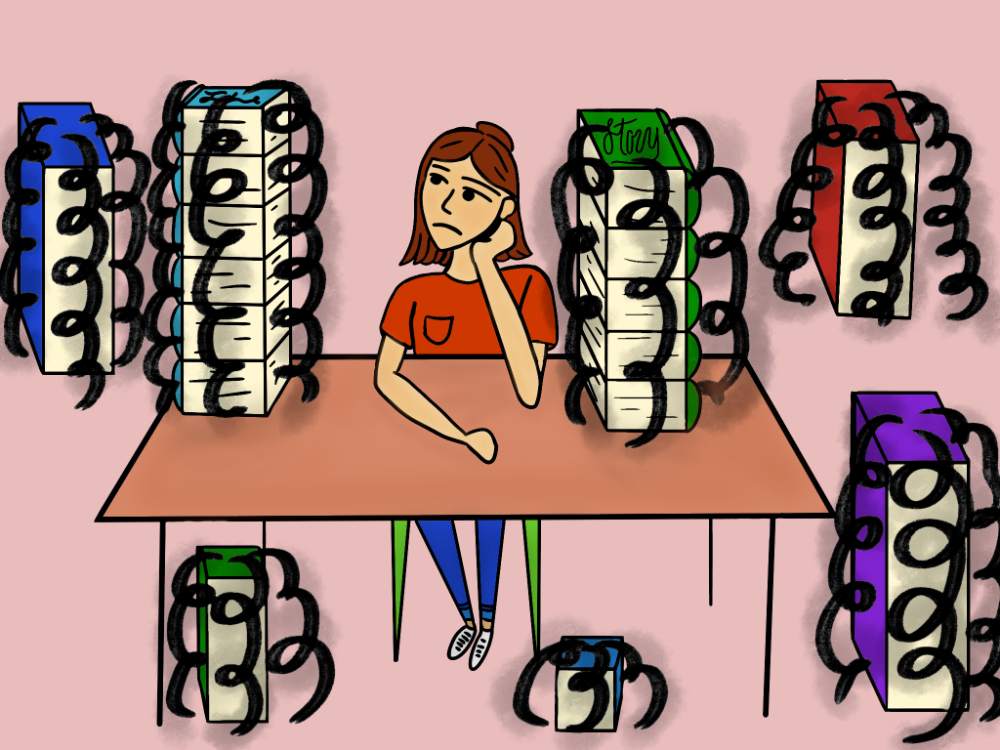
By Jennifer Trend
Back in freshman year, you might’ve been an avid reader. Then in sophomore and junior year, the amount you read fluctuated with the amount of work you received from your classes– some months it was like you were a freshman again, but then you would go a month or two without so much as looking at a new book. Finally, you arrive to senior year and it’s finally second semester when it hits you; you haven’t read anything outside of English class and that one book you started over winter break has yet to reach the halfway point.
You promised yourself that you would never become those seniors that you saw in freshman year who used to read but didn’t anymore. So what happened?
Well, there’s a variety of reasons, from simply not having enough time, to depression.
Being a senior, there are a mountain of responsibilities to conquer. There’s your classes, which may include a handful of APs, college admissions, sports, jobs and volunteering… the list goes on. Your free time dwindles rapidly, and taking time to read may not be a top priority.
You’re also growing, learning more about the world around you and who you are as a person. So what you once used to love to read may not be what interests you anymore. Maybe the high fantasy lore that once drew you in is now too complex or too unrealistic to follow. Maybe the romance novels that you once based your love life on have proven to be faulty, and no longer apply to you. You’ve changed, and nothing will ever stay the same, just like your reading preferences.
Then, there are the more psychological reasons. Did you vividly read as a child and were more prone to stay inside with a book than go outside with others? Would you say that fictional characters and worlds were just as real as the real world then? And maybe when you were younger, you found solace in the worlds between the pages because you found it hard to socialize with others; found it hard to interact and interacting with fiction was simply easier. But as you got older, you learned not to rely on fiction so much, and understood how to socialize better. You grew comfortable with interactions in the real world and realized it wasn’t that bad. So instead of staying inside with a book, you put it down for others. In essence, reading was a coping mechanism for you. I’ll leave it to you to decide if that’s a good thing or not.
Lastly, it may just be depression. A considerable percent of high schoolers experience some form of depression during these four years, and it’s plausible that this is why you stopped reading. One of the symptoms of depression is a loss of interest; things that used to excite you may no longer hold the same excitement. If you think that this may be the case, especially if you have signs of other symptoms of depression, then it might be wise to contact the psychologist here at FVHS or see a therapist; depression is a serious problem that shouldn’t be taken lightly.
Maybe it’s none of these reasons. Maybe it’s a combination of the above. Only you can tell. But if it’s any consolation, the worlds and characters that you once loved never really leave, and will be a part of you and your story for the rest of time. You can get back into reading– maybe this is just the quiet before the storm or rising action, if you will. It might take some time, but it can happen with some will. Good luck on your adventures, fellow reader.





